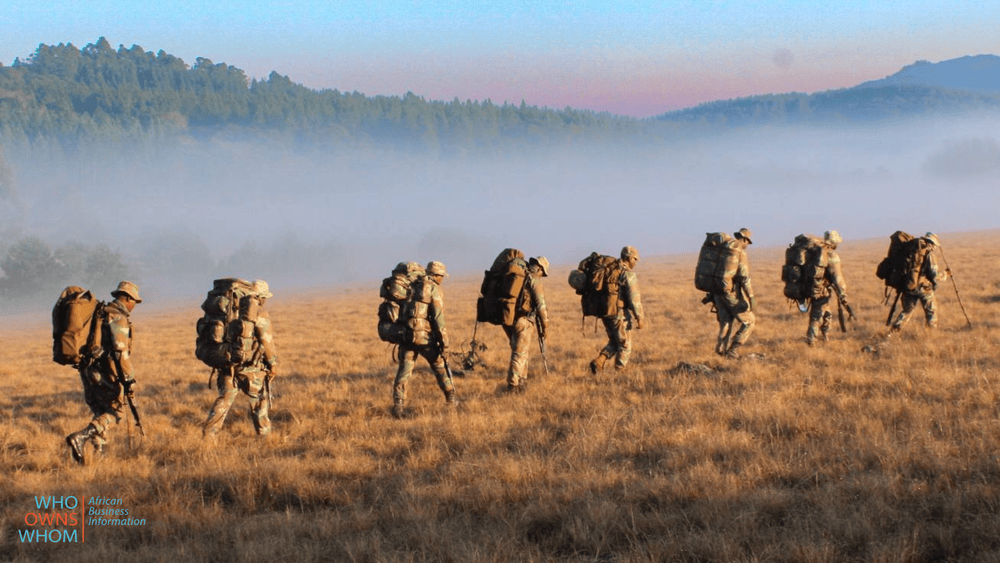South Africa’s security industry: A puzzle worth unravelling
No one can build his security upon the nobleness of another person” – Willa Cather
Contents [hide]
- South Africa’s security workforce, bigger than the police and army combined
- Big government vs small government: Who keeps the citizens safe
- A booming security industry, yet so much crime in South Africa – why?
- Why security matters more than ever in South Africa
- Private security, a double-edged sword for South Africa
Security is an integral part of society, yet it is often taken for granted and generally delegated to governments until safety is threatened.
South Africa’s security workforce, bigger than the police and army combined
Security is provided in several ways. The Who Owns Whom report on security activities in South Africa demonstrates that the country is in the top league. The report states that the active private security workforce is around 609 000 significantly exceeding the combined personnel of the South African Police Service, which is around 150 000 and the South African National Defence Force of around 75 000.
To understand the South African security industry, one must reflect on high crime rates, high unemployment, and economic disparities, which drive the industry’s landscape. The high level of crime has also led to the growing adoption of advanced technologies in fleet tracking, CCTV, and artificial intelligence.
Big government vs small government: Who keeps citizens safe?
There are different opinions on the role of government, ranging from small governments with minimal interference in society to big governments that are interventionist in their approach. Regardless of the model, security is always an element of governments’ responsibilities. Big governments are invariably found in socialist regimes and dictate how people should live, how much they will earn and often what they should think and do, consequently limiting free speech. In these regimes, wealth is redistributed, with private ownership being limited. In some big
governments, usually socialist in approach with state ownership rules, crime rates are apparently low, and one might conclude that security in terms of living and income was low.
Small governments generally allow for more liberties, but in some instances, crime rates are higher and feelings of insecurity may be too. Europe, for instance, has a bigger government compared to that of the US, but its crime rates are lower and with a higher sense of security. At the top of the pyramid, prime ministers and politicians in Europe don’t travel in security cavalcades and are not permanently surrounded by an army of bodyguards. But US crime levels are still way below South Africa’s.
A booming security industry, yet so much crime in South Africa – why?
Why do we have such a vast security industry in South Africa? Why do ministerial bodyguards deem themselves above the law, inflicting harm on civilians with impunity? Why do urban and peri-urban communities live behind high walls backed up with armed response?
The democratic dispensation in South Africa finds itself with a ballooned, interfering, inefficient government, failing to deliver on its mandate of providing security and an adequate social safety net for many of its citizens. This fuels unrest and creates a cycle where crime flourishes and security is an individual’s burden.
The government is no longer small. It assumes private sector roles in the economy and has policies of high taxes and high redistribution of wealth. Yet, it falls short in terms of utilising those taxes to grow the economy or carry out its responsibility of providing security for its citizens.
Why security matters more than ever in South Africa
The very high unemployment rate without a proper social safety net is one of the main causes of violence and criminality in South Africa. The government juggles economic policy and wealth redistribution to address the ills of the past and to bring about the means to create adequate social safety, while it ignores the big elephant in the room of improving government efficiency by cutting the size of its bureaucracy and creating an enabling environment for the private sector to thrive and therefore create jobs that would solve income generation for individuals.
Private security, a double-edged sword for South Africa
With a whopping 690 000 workforce the security industry in South Africa has become a source of employment, especially for former soldiers, police officers, and young people without access to formal jobs. This well-developed industry with a highly deregulated framework is one of the largest in the world, housing thousands of registered companies that offer a wide range of services including armed response, guarding, monitoring and forensic investigations, and security technology.
The government should rethink its model and review its civil service composition and liberate the private sector, in a secure and predictable environment, to blossom in line with a model that
is appropriate for an ailing economy with most of its youth unemployed. The private sector can play a critical role in driving wealth creation, economic growth and lower unemployment.
South Africa’s security dilemma lays bare a bloated government failing to deliver basic safety, while the private sector security industry is booming, illustrating how the private sector can innovate and solve some of the challenges that government is not solving on its own. This includes improving efficiency and rethinking social services as a source of employment.
No one can build their security upon the nobleness of another person.
Contact us to access WOW's quality research on African industries and business
Contact UsRelated Articles
Blog Public administration and defence compulsory social security
South Africa’s defence capability, performance, partners and rising global risks
Contents [hide] The Russia-Ukraine war is demonstrating how agile, technology-driven warfare dominated by drones, missiles and precision systems is starting to undermine traditional on-the-ground troops and heavy equipment. South Africa’s...
CountriesNewsletters Other service activitiesPublic administration and defence compulsory social securitySouth Africa
WOW 2017 Highlights in Numbers
Despite a challenging economic environment, Who Owns Whom had a successful 2017. - 21 local and international corporations became new Who Owns Whom clients. - WOWEB introduced more than 30 new features based on customer requests.
CountriesNewsletters Financial and insurance activitiesPublic administration and defence compulsory social securitySouth Africa
Implications of the Financial Intelligence Centre Guidance Note 7 Published on October 2nd 2017
In the fight against money laundering and terrorist funding, the intention of the FIC’s recently released Guidance Note 7 is to support accountable institutions and supervisory bodies in the implementation of the Financial Intelligence Centre Act, 2001 (Act No. 38 of 2001) (the FIC Act).





